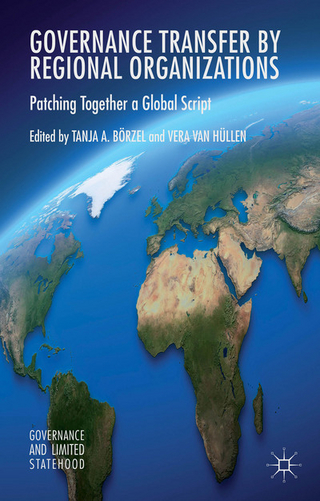
Against all odds: strong democratic norms in the African Union
Leininger, JuliaExternal Publications (2015)
in: Tanja A. Börzel / Vera van Hüllen (eds.), Governance transfer by regional organizations, London: Palgrave Macmillan, 51-67
ISBN: 9-7811-3738-563-5
Information
Non-acceptance of Unconstitutional Change of Government (UCG) is an African norm that was legalized between 2002 and 2012. Today, it is a legally binding norm that holds the national governments of AU member states responsible for maintaining a stable and democratic regime within their countries. Moreover, the notion of UCG has become more democratic. Accordingly, fears that non-acceptance of UCG would support governments that aim to stabilize a non-democratic regime are not realized—at least on the normative level. Despite the reduced space for a pro-autocratic legal interpretation of this norm, it remains the task of AU member states to implement it in a democratic way. The analysis showed that the interplay of five factors influenced the legalization and democratization of the non-acceptance of UCG in the AU. Inner-African factors outweigh the role of OECD donors’ influence. While demand-driven factors explain norm creation until 2002, support-driven factors fostered its legalization and democratization after 2002. On the demand side, a functional approach that guaranteed peace and security on the African continent as well as the vital interests of the hegemonic powers led to the introduction and codification of the non-acceptance of UCG. On the supply side, ECOWAS served as a normative reference model; its member states proactively supported the legalization of the non-acceptance of UCG on the regional level. Moreover, the AU Commission’s contributions make clear that non-acceptance of UCG has become a binding rule and democratic provision. Finally, donors’ financial support of member states and AU organs reinforced regional developments and strengthened the independence of AU organs from their member states.

